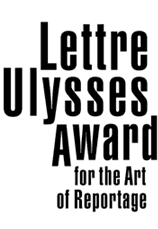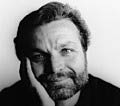
Nedim Gürsel, Turkey

Writer and essayist. Nedim Gürsel was born in 1951 in Gaziantep, Turkey. In 1971, Gürsel went to Paris to study Comparative Literature at the Sorbonne. In 1979, he received his doctorate with a dissertation on Louis Aragon and Nazim Hikmet. His literary activity includes numerous essays, travel stories, short stories, novels, as well as scholarly publications.
Two of his early books were censored under military rule. His first volume of stories A Summer without End was published in 1975 and received Turkey's highest literature prize, the Prize of the Turkish Language Academy in 1976. In 1981, after the military coup d'état, the book was tried in front of a military tribunal for having slandered the Turkish army. In 1983, his novel The First Woman was charged with having offended the public moral and was also censored by the military for a number of years. The charges against Gürsel were later dropped, but for the years of the trial, both books were withdrawn from the Turkish public. In 1986, he received the Ipekci Prize for The First Woman on occasion of an event promoting Turkish-Greek cultural understanding. In the same year he received the Prix de la Liberté of the French PEN club.
His novel The Conqueror describes the 1453 conquest of Constantinople from the perspective of the conqueror and the conquered and takes a critical look at the 1980 military coup d'état. The Encyclopaedia Britannica characterizes this novel as one of the most outstanding postmodern Turkish novels.
Nedim Gürsel's books have been translated in more than ten languages. He is a founding member of the International Parliament of Writers. Today he teaches contemporary Turkish literature at the Sorbonne in Paris. He just published his literary travel reportage about the traces of Islam in Andalusian Spain, La Mort au Soleil. He is currently working on a book about the places of his childhood. (Here an article about "The Last Wall in Europe")
Nedim Gürsel lives in Paris and frequently visits Turkey.
